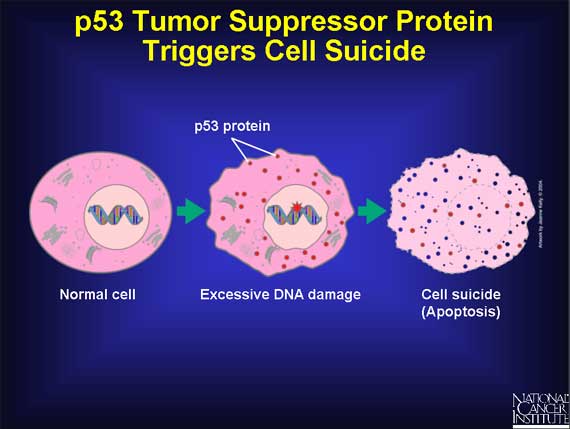|
One particular tumor suppressor gene codes for a protein called "p53" that can
trigger cell suicide (apoptosis). In cells that have undergone DNA damage, the
p53 protein acts like a brake pedal to halt cell growth and division. If the
damage cannot be repaired, the p53 protein eventually initiates cell suicide,
thereby preventing the genetically damaged cell from growing out of control.

< Previous | Index | Next Slide > |